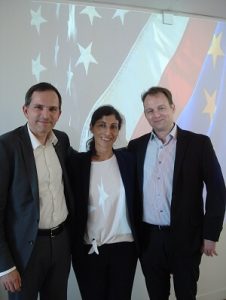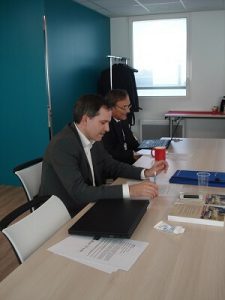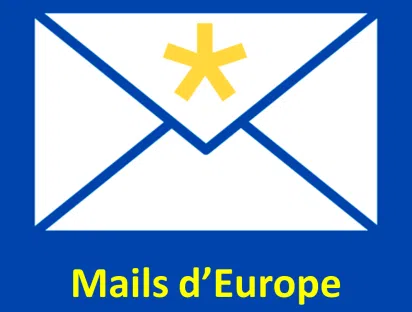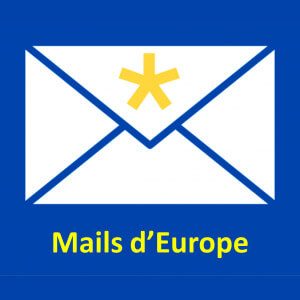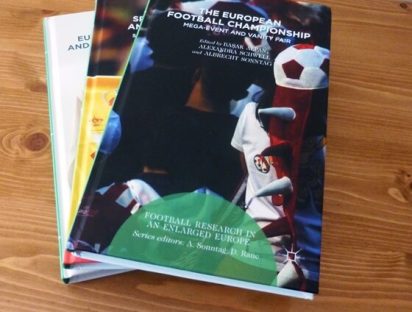On 21 of September 2018 researchers, experts and students came together for a research seminar at the ESSCA campus in Paris. The goal was to jointly discuss what Trump and his foreign policy mean for the relations between Europe and the United States.
“Trump has a point” said Kristian L. Nielsen (Copenhagen Business School) when the American President asks Europe to spend more money on defence. European NATO countries spend on average less than the target of 2% of GDP whereas the US spends around 3,6% on defence and security.
Nielsen pointed out that already Trump’s predecessors, G.W. Bush and Obama, urged Europeans for higher spending on the military. Since Trump took office, Europeans have realised that they can no longer rely on the US and have to take their fate into their own hands. For the future this will require greater European cooperation in defence questions. According to Nielsen, President Trump with his undiplomatic attitude might finally push Europeans to meet their responsibilities and to become more independent from US protection.
During the second presentation of the seminar, Thomas Hoerber (ESSCA) explained that Trump’s foreign policy strategy is completely different from all post-WWII US foreign policies. The fact that “President Trump clearly believes that his mission is to represent the American people, that and no other” is worrying Hoerber. The US President is no longer supporting international solutions and has only one interest – “America first”. Trump is hostile towards unified economic, political and military blocks such as the EU or NATO, because he hopes to get “a better deal” when the US negotiates with single nations.
Not only does this new US foreign policy strategy endanger the transatlantic relation, but also President Trump’s rhetoric. The rise of populism in the US has significant influence on the EU, e.g. when Trump congratulates the British for the Brexit decision. Hoerber concluded that Europeans can no longer rely on the US and therefore have to consider more European integration in order to meet the challenges of the future.
Anna Dimitrova (ESSCA) put Trump’s new foreign policy doctrine “America first” into its historical context. She pointed out that it is not a new phenomenon and explained that already President Andrew Jackson (elected in 1828) followed similar principles in the 19th century. According to Dimitrova the Trump doctrine is characterised by a “nationalist vison focusing on US interests and material gains”. Applying a deal-making strategy to foreign policy at facing main threats, which are (Islamic) terrorism, “unfair” trade deals and illegal immigration.
During the discussion speakers and audience agreed that whether Europeans like it or not, Trump’s foreign policy has a huge impact on European politics. This foreign policy is not new in US history and will influence transatlantic relations for a long time. Therefore, Europe might be better off to take security and defence matters into its own hands.
Participants in the research seminar expect Europe to develop a deeper and more efficient common security strategy, including Britain, which leaves the European Union but remains a major actor in ensuring Europe’s security.
Dr Kristian L. Nielsen (Copenhagen Business School), “Europe, Trump and the Enduring Need for the Transatlantic Alliance”
Dr Thomas Hoerber (ESSCA), “Transatlantic Relations under Trump: Chances and Challenges”
Dr Anna Dimitrova (ESSCA), “Understanding Trump’s ‘America First’ Foreign Policy: The Return of the Jacksonian Tradition in US Foreign Policy?”
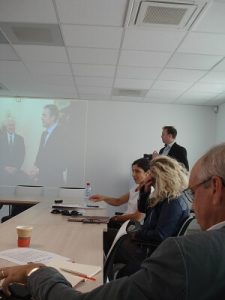
Dr Kristian L. Nielsen (Copenhagen Business School), “Europe, Trump and the Enduring Need for the Transatlantic Alliance”
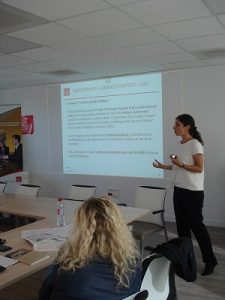
Dr Anna Dimitrova (ESSCA), “Understanding Trump’s ‘America First’ Foreign Policy: The Return of the Jacksonian Tradition in US Foreign Policy?”
[cite]

